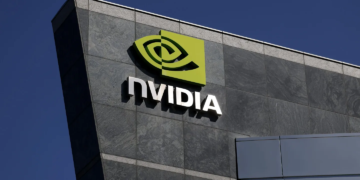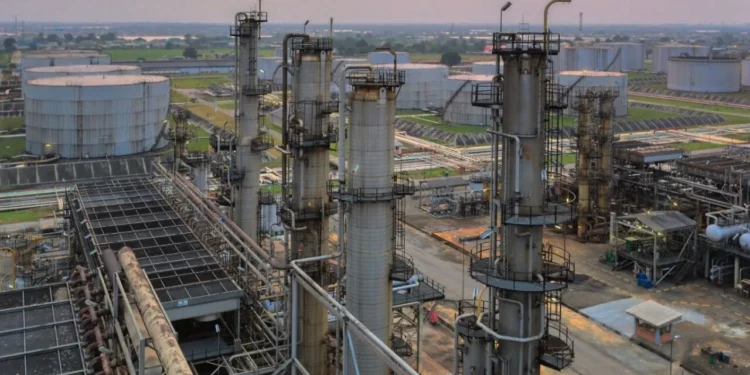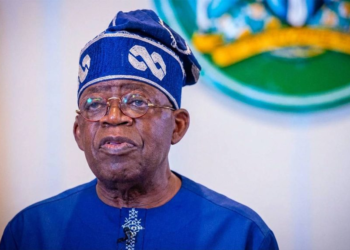The Group Chief Executive Officer of the Nigerian National Petroleum Company Ltd (NNPCL), Mele Kyari, has assured that the Port Harcourt Refinery will commence operations by August this year. Kyari made this announcement during an interactive session with members of the joint committees of the National Assembly on Finance.
During the session, Kyari emphasized that several initiatives by the national oil company would position Nigeria as a net exporter of petroleum products by December 2024.
The meeting, chaired by Senator Sani Musa (APC Niger East), included key officials such as the Ministers of Finance, Wale Edun; Budget and National Planning, Senator Atiku Bagudu; Minister of State Petroleum, Senator Heineken Lokpobiri; and the Governor of the Central Bank of Nigeria, Yemi Cardoso.
In his presentation, Kyari highlighted emerging indicators in the oil and gas sector. He noted that, alongside the Port Harcourt Refinery starting production next month, the Warri refinery would follow suit in the coming months, and the Kaduna refinery would be operational by December 2024.
Kyari also stated that Nigeria’s oil production level is expected to reach two million barrels per day soon, due to effective measures put in place. “Mr. Chairman and members of the Joint Committee, NNPCL and the oil and gas industry are crucial in bringing a turnaround in our current economic situation, and we are taking every practical step to achieve this,” he said.
Kyari attributed recent growth in oil and gas production to actions taken by President Tinubu and the declaration of a “war on production activities,” which has yielded positive results. He expressed optimism that Nigeria would soon hit the target of two million barrels of oil production per day.
Addressing concerns about domestic production and refining, Kyari confirmed that the country would be a net exporter of petroleum products by the end of the year. This would be achieved through production from NNPCL refineries, the Dangote refinery, and other smaller producing companies.
Kyari assured the committee that the Kaduna refinery would be operational by December, while the Port Harcourt refinery would begin production early August this year. The Warri refinery is also expected to commence operations shortly after.
It was previously reported that following the mechanical completion of the Old Port Harcourt Refinery in December 2023, NNPCL supplied a total of one million barrels of crude oil to the plant for refining. This crude oil was delivered in two tranches, with the latest delivery occurring last Wednesday. From these supplies, an estimated 170 million liters of Premium Motor Spirit (PMS) and other refined products can be obtained.
The start of operations at the Port Harcourt Refinery is expected to reduce the importation of Liquefied Petroleum Gas (LPG). Investigations also revealed that the refinery’s license had been issued by the Nigerian Midstream and Downstream Petroleum Regulatory Authority in preparation for the commencement of refining operations.
The Port Harcourt Refinery, operational since 1965 and located in the oil-rich Niger Delta region, is the oldest and largest of the three government-owned oil refining sites in Nigeria. The $1.5 billion rehabilitation project covers engineering, procurement, construction, installation, and commissioning phases. The refinery comprises a Crude Distillation Unit (CDU), a Catalytic Reforming Unit (CRU), and an LPG facility, and is expected to produce petrol, diesel, LPG, aviation and domestic kerosene, low pour fuel oil (LPFO), and heavy pour fuel oil (HPFO).
Following the mechanical completion of the Old Port Harcourt Refinery in December 2023, NNPCL has completed key pre-commissioning activities, including purging, inerting, leak tests, loop checks, calibrations, motor solo runs, and steaming out of critical sections of the plant. The pre-start-up safety review was also completed with the Nigerian Midstream and Downstream Petroleum Regulatory Authority.
With these developments, Kyari expressed confidence that the Port Harcourt Refinery would soon be operational, contributing significantly to Nigeria’s goal of becoming a net exporter of petroleum products by the end of 2024.

































